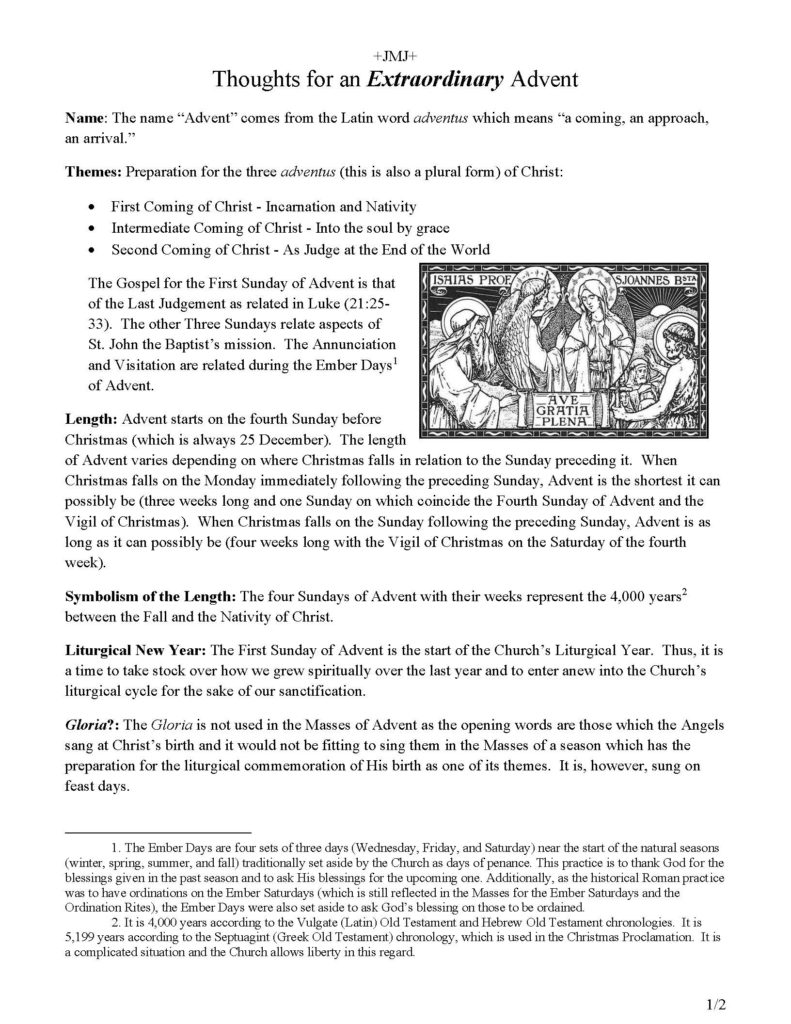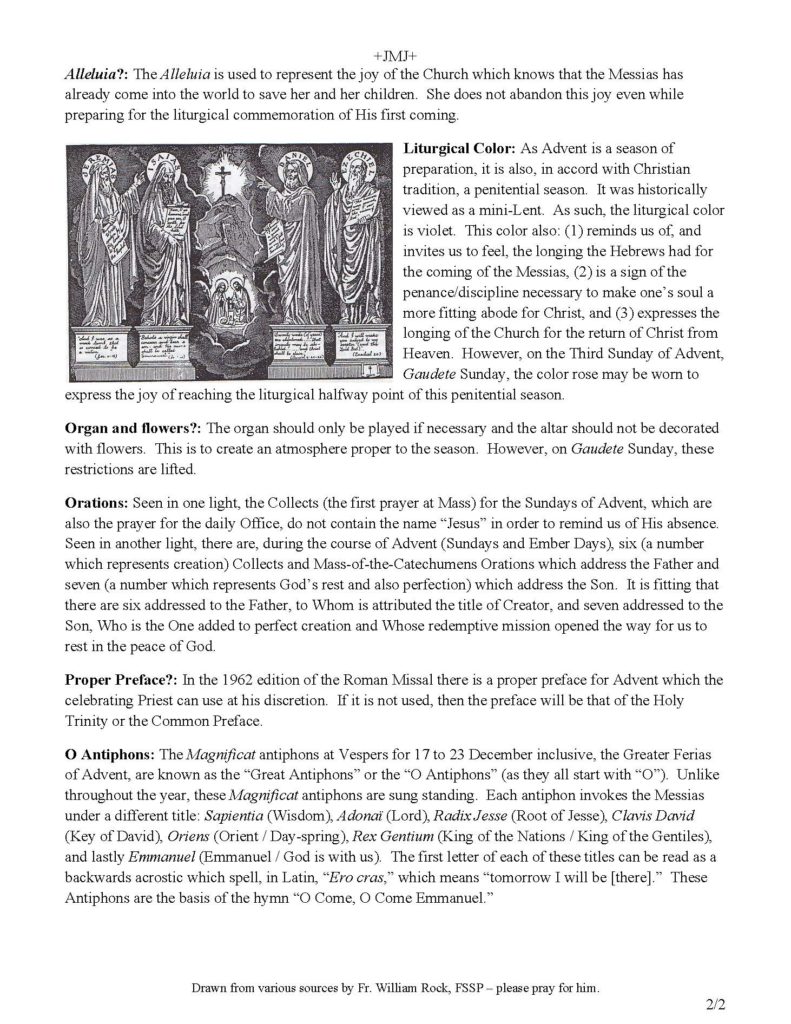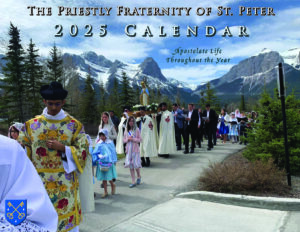Out of My Way!
Any of us who drive are likely guilty of getting annoyed with other drivers from time to time.
 We all have our pet peeves about what others do on the road, from the perpetual blinker, to those forgetting that a right turn can be made on the red, to those backing up traffic while trying to parallel park in a space that even a toddler could realize is too small. Even an old Far Side cartoon shares the sentiment by depicting hell with a special room reserved for those who drove too slow in the fast lane.
We all have our pet peeves about what others do on the road, from the perpetual blinker, to those forgetting that a right turn can be made on the red, to those backing up traffic while trying to parallel park in a space that even a toddler could realize is too small. Even an old Far Side cartoon shares the sentiment by depicting hell with a special room reserved for those who drove too slow in the fast lane.
Kidding aside, what this annoyance really boils down to is the fact that someone is observed to “be in my way.”
I am trying to get somewhere in a certain amount of time, and all these other drivers are preventing me from doing that; and if I am running late, especially through my own fault, the annoyance increases because they are now really getting in my way. After all, why must all these other drivers choose to be out on the road at the same time I am? But since they are, why cannot they just drive the same way I do? They are in my way.
Obviously, while sitting here calmly, we can all realize the opportunities such situations afford to practice charity and patience if we really took advantage of them.
When was the last time, for instance, we said a Hail Mary for the person who cuts us off, instead of saying other things, or even making gestures?
The traffic is what it is, people drive the way they do. We will always have our self-righteous slowpokes with identity-politics bumper stickers and inattentive drivers to deal with. But this attitude of annoyance we may sport towards other drivers gives us plenty of food for thought in regard to the care we must have for our souls, especially with Christmas fast approaching.
Once again, I get annoyed because someone is in my way; they are perceived to be an obstacle to reaching my desired destination.
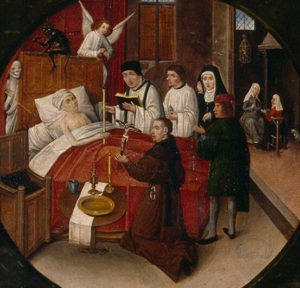 But where are we supposed to be going in this life of ours? What is our final destination?
But where are we supposed to be going in this life of ours? What is our final destination?
It is heaven. It begins here and we all have work to do in order to get there, not just externally but interiorly in our own souls. It is not a place we magically arrive at.
Yet in contrast to how we drive, how little annoyance we seem to have for things that get in our way and stall our growth of love for Christ.
If we are striving to take reasonable care of our souls, we should all be able to say with some measure of annoyance that we wish certain things were not there, or that certain things were there: this or that inclination to a sin, a lack of some virtue that is particularly difficult, a lackadaisical or superficial approach to prayer and the Sacraments that spur no real conviction of Faith, all things that impede my progress towards love for God and truly get in the way.
But this cannot just stop at annoyance. Reacting to something is not the same as doing something about it.
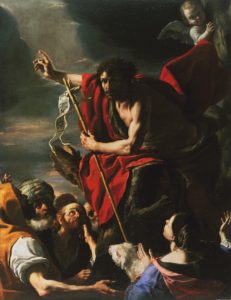 On the last two Sundays of Advent, the Church presents us with the great and steadfast figure of St. John the Baptist, fulfilling the words of the prophet Isaias: A voice of one crying in the wilderness: Prepare ye the way of the Lord, make straight His paths. Every valley shall be filled; and every mountain and hill shall be brought low; and the crooked shall be made straight, and the rough ways plain. And all flesh shall see the salvation of God (Lk. 3:2-6).
On the last two Sundays of Advent, the Church presents us with the great and steadfast figure of St. John the Baptist, fulfilling the words of the prophet Isaias: A voice of one crying in the wilderness: Prepare ye the way of the Lord, make straight His paths. Every valley shall be filled; and every mountain and hill shall be brought low; and the crooked shall be made straight, and the rough ways plain. And all flesh shall see the salvation of God (Lk. 3:2-6).
Although John would point out Christ at the advent of His public life, this passage rightfully applies at the advent of His Birth. It is that call to reawaken our sense of responsibility towards our spiritual lives and how our own efforts of sanctification actually affect those of others. It is a call to be challenged by the Manger and subsequently by the Cross that follows it. It is an impetus to appeal the Holy Ghost to stir up in us a more devout practice of the Faith, the desire for good and frequent use of the Sacraments, a spirit of self-denial that seeks the will of God and acceptance of the hard things, to abandon escapism, to carry our crosses, to cultivate a relationship with Christ that impacts and transforms the soul, sparking a love for virtue, a hatred for sin.
It should compel us to pray what we need to pray about. In this way do we discover the crooked paths of false zeal, impure inclinations, and bad intentions that need straightening; the valleys of cowardice and sloth that need filling; the mountains of pride, selfishness, and worldly ambition that need leveling; and the rough paths of jealousy, hatred, lack of charity, and unwillingness to forgive that need smoothing.
The wood of the cradle and the wood of the Cross are inseparably linked.
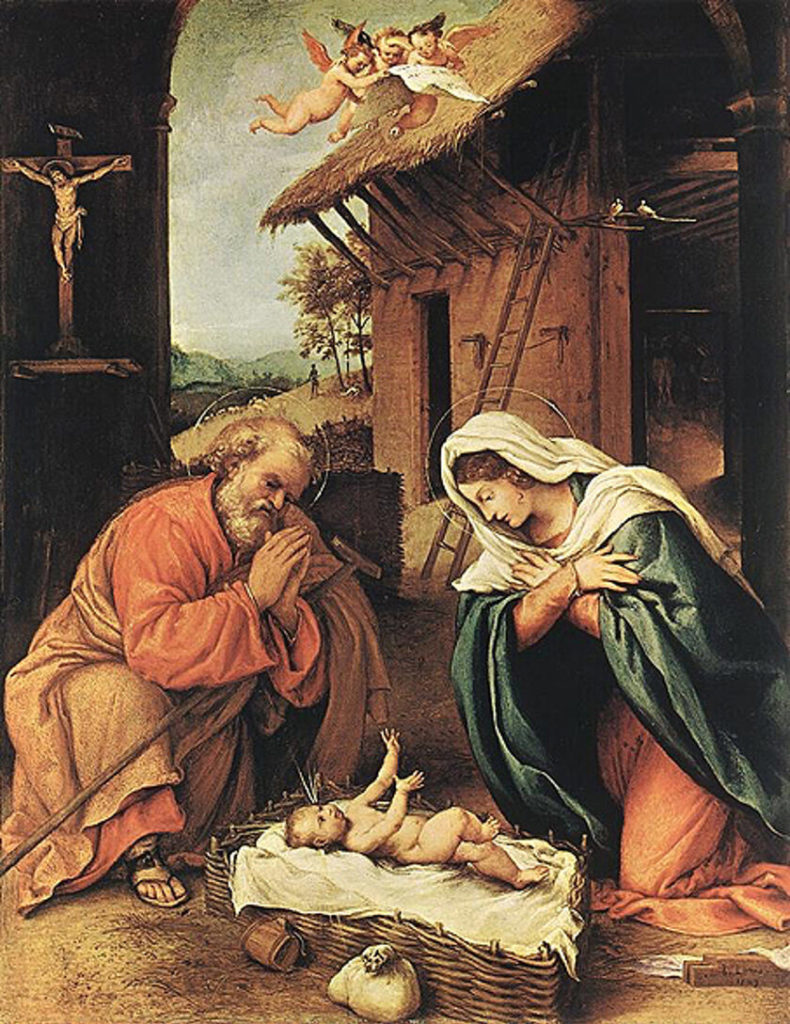
This is how we have redemption; this is the Savior we look for and need. It is not just some honorary title. This is the meaning of Christmas that we all have the responsibility to profess in a world that thinks it has no need for a Savior.
And the greater our conviction of that, by the grace of God, so the higher we keep our standard and more readily admit to the things that we let get in our way.
December 22, 2020

Mail Delays for Christmas Cards etc.
We have received word from the US Postal Service that they are experiencing a large backlog of packages and and mail, because they lack the manpower to sort and deliver them quickly.
So please be advised that timely delivery of Christmas cards and other FSSP mail to your homes may be seriously affected this year.
We apologize for the inconvenience and ask for your patience and understanding as the Post Office catches up with its backlog.
December 21, 2020

Zero Sum Game
One of the many things we can observe about our Lord is His uncanny lack of care about numbers and averages.
From a human standpoint, with such an important mission as saving the world, it may seem that He did not dedicate a lot of time to it. After four thousand years of waiting for His Birth, and except for that unusual instance in the Temple when He was twelve and insisted that He must be about His Father’s business, (Lk. 2:49), one would think He would have been chomping at the bit to get started.

Instead, He was thirty when He decided to set out from Nazareth, and He pretty much laid low and did not do much during that first year of His public life. He saw an increase in popularity during the second year courtesy of His miracles, but eventually that waned. By the third year, opposition spread and things were a mess, and they ended even messier.
The devil had tried to give our Lord advice on how to best go about things, especially after wasting thirty years as a carpenter in a know-nothing village. After all, filling stomachs and purses by turning stones into bread, or putting on shows with His divine power by throwing Himself off a cliff, sure would have kept the numbers coming (cf. Mt. 4).
Such suggestions kept popping up throughout His life.
 They tried to make Him king after the miracle of the loaves, and He fled (Jn. 6:15). Newly-named Peter tried to distract Him from the Cross, and Christ called him Satan (Mt. 16:23). After His words about eating His Body and drinking His Blood, He challenged His Apostles to walk away also (Jn. 6:68). Even to the very end, Herod asked to see miracles (Lk: 23:8), and the crowd challenged Him to come down from the Cross so they could believe (Mt. 27:40).
They tried to make Him king after the miracle of the loaves, and He fled (Jn. 6:15). Newly-named Peter tried to distract Him from the Cross, and Christ called him Satan (Mt. 16:23). After His words about eating His Body and drinking His Blood, He challenged His Apostles to walk away also (Jn. 6:68). Even to the very end, Herod asked to see miracles (Lk: 23:8), and the crowd challenged Him to come down from the Cross so they could believe (Mt. 27:40).
Lest we accuse our Lord of intentionally disqualifying Himself for the front page of Fortune 100, or to be some sort of justification for late-starting millennials, Christ knew what was in man, and understood perfectly what He had to contend with in order to achieve and obtain the result He wanted.
During His entire life, always self-possessed and in command of Himself, Christ was always going about His Father’s business, for God’s ways are not our ways. (cf. Is. 55:8) The sin of man had to be atoned for, and humility was to be the overarching theme throughout as a lesson on how to counter the pride that got us into the actual mess we were in – but could not see it until Christ hung on the Cross in the condition man left Him in.
But through it all, He called for imitation of His life if we wanted what He offered – to be heirs with Him of a kingdom that would last forever (Lk. 12:32).
 And this would have its own appeal through the centuries, because no man has ever spoken like Jesus Christ, who asked for much and promised even more, and proved to be Who He claimed. True, it would always spark controversy and be unpopular in certain circles.
And this would have its own appeal through the centuries, because no man has ever spoken like Jesus Christ, who asked for much and promised even more, and proved to be Who He claimed. True, it would always spark controversy and be unpopular in certain circles.

Nonetheless, that Christ is God is the game-changer; no one else makes that claim and proves it, no other religion outside the fold of Christianity has it. There is no room for a middle road or compromise, and perhaps it is a question that needs to be asked more vocally and publicly in this far-from-black-and-white world in which we live: is Christ God?
How one answers – and how much one believes it – will affect how one lives. Christ is not some mythical figure; He is a mystical Figure, true God and true Man. Should this not be the greatest thing ever? Should we not be grateful to be numbered among His baptized and want others to have it? No wonder Christ commanded for it to be preached and spread.
Come, Holy Ghost, and stir us up!
But it seems that modern evangelization efforts have cowered under pressure to soften this, lest we offend. While admitting that there can be better and worse ways to evangelize, the question about Christ remains the same and must be asked. St. Paul was all about this and he would likely be martyred again today for doing it.
Regrettably, it seems the Church has grown too comfortable in recent decades of not asking this, and asking it frequently, almost like she is embarrassed by it, as if evangelization is a zero-sum game, as if there is only a static number of souls to work with. Worried that the faithful would leave should they hear the hard truths, it has been forgotten that for anyone that walks away (painful as it may be to watch at times), others will always come – and will stay – perhaps even more than those who left.
 There just might be a great catch to be had if the nets are dropped with conviction, recognizing as Peter did that Christ alone, though His Church, has the words of everlasting life. How many more gimmicks and programs need to be introduced, sometimes at great expense, before we catch on that they do comparatively little in retaining the faithful and making converts?
There just might be a great catch to be had if the nets are dropped with conviction, recognizing as Peter did that Christ alone, though His Church, has the words of everlasting life. How many more gimmicks and programs need to be introduced, sometimes at great expense, before we catch on that they do comparatively little in retaining the faithful and making converts?
Has not Christ left us a simple recipe to follow? There is nothing that evangelizes more effectively than a prayer-fed patient, charitable, and uncompromising commitment to Christ and His Church, with all the unpopular truths that compose the words of everlasting life.
Perhaps it would do well for the Church at large to realize that our Lord’s lack of concern for numbers is not an excuse for inactivity, because that seeming lack of concern was accompanied by a courage that took Him to the Cross, upon which He gathers all to Himself who have ears to hear, provided someone preaches, manifesting that evangelization is not zero-sum. Nor a game.

Where Hell Begins (Part 3)
Ever notice that everything in the Our Father is sandwiched between the reality of a God who wishes to be known and loved as a Father and the need for forgiveness, both from Him and between ourselves?
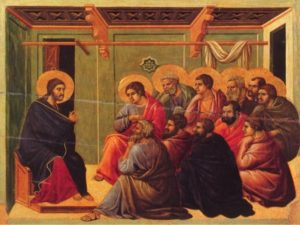 On account of the entire motive behind the Incarnation – a motive articulated by God in Eden – Christ is emphatic about our need to forgive. Forgive us our debts as we forgive, a comparative petition, with the assurance of grace to bear temptations and deliverance from evil as the reward (Mt. 6:12).
On account of the entire motive behind the Incarnation – a motive articulated by God in Eden – Christ is emphatic about our need to forgive. Forgive us our debts as we forgive, a comparative petition, with the assurance of grace to bear temptations and deliverance from evil as the reward (Mt. 6:12).
The fate of the unjust steward who would not forgive should send up a high warning flag (Mt. 18:23 ff.). Seventy times seven does He answer Peter’s question about how often to forgive.
This is all because, as God is interested in ending hell in our lives, we – quite to the contrary – can make other people’s lives hell by not forgiving, by holding out on them, by refusing to extend an olive branch when able, by holding grudges, by giving the silent treatment, or by not expressing sorrow when we are at fault.
 Perhaps we set the bar too high for others who have wronged us, failing to acknowledge clumsy yet genuine efforts made to change, refusing to heed the example of the Good Samaritan who walks with the wounded; this often happens between spouses. Christ instituted the Sacrament of Confession, not only for us to have the spiritual benefit of knowing we are forgiven by God for our sins, but also for the psychological benefit of hearing the words I forgive you.
Perhaps we set the bar too high for others who have wronged us, failing to acknowledge clumsy yet genuine efforts made to change, refusing to heed the example of the Good Samaritan who walks with the wounded; this often happens between spouses. Christ instituted the Sacrament of Confession, not only for us to have the spiritual benefit of knowing we are forgiven by God for our sins, but also for the psychological benefit of hearing the words I forgive you.
Those words are crucial for the healing process in any fractured or ruptured relationship, and scar tissue is far preferable to an open wound, mindful that it is stronger than the skin it replaces. (And don’t worry, God will take care of any cosmetic surgery that is needed for scars.)
Understand how the angel on Easter morning instructs Magdalene to go tell the others and Peter that our Lord is risen (cf. Mk. 16:7).
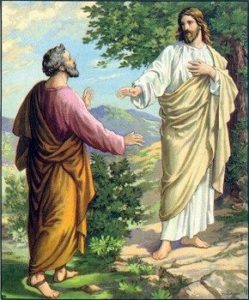 Peter is not singled out here just because he is the prince of the Apostles; it is likely more because Peter had denied our Lord three times, leaving him in a very uncertain and hellish state of existence of where he stood with Christ. Our Lord wished to begin relieving that burden Peter carried so deeply within, even before He appeared risen to them.
Peter is not singled out here just because he is the prince of the Apostles; it is likely more because Peter had denied our Lord three times, leaving him in a very uncertain and hellish state of existence of where he stood with Christ. Our Lord wished to begin relieving that burden Peter carried so deeply within, even before He appeared risen to them.
And upon that appearance, Christ wishes them all peace – something most foreign to hell – and gives them the power to forgive sin (Jn. 20:19 ff.). Behold again the motive of the Redeemer announced in Eden. End the hell.
No wonder then that those who have the strongest and most durable faith, be it today or yesteryear or among the canonized saints through the ages, are those who have profoundly realized the forgiveness they have received from God, be it experienced through the confessional with a hand raised in absolution, or through a hand held out in peace from someone they had grieved.
Such forgiveness brings with it a life and love that can only come from God. The clouds clear, creating some heaven here amidst the hell all around us.
 Forgiveness fulfills St. Paul’s exhortation to bear one another’s burdens (Gal. 6:2). It amounts to sharing in the burden God took upon Himself in Eden, manifested in Bethlehem, fulfilled on Calvary. It means taking the risk of what comes with a true relationship with God that is consequent of such forgiveness, loving our neighbor as ourselves, discarding the sham of being “spiritual,” the horror of being hidden from God, and finding contentment to live and suffer with Him.
Forgiveness fulfills St. Paul’s exhortation to bear one another’s burdens (Gal. 6:2). It amounts to sharing in the burden God took upon Himself in Eden, manifested in Bethlehem, fulfilled on Calvary. It means taking the risk of what comes with a true relationship with God that is consequent of such forgiveness, loving our neighbor as ourselves, discarding the sham of being “spiritual,” the horror of being hidden from God, and finding contentment to live and suffer with Him.
Forgiveness trades our wounds for the open wound of Christ’s Heart, and that is the place where heaven begins.
December 18, 2020

Where Hell Begins (Part 2)
The word hell has its origin from the old Norse word hel, which means hidden. It connotes a separation of things that should be together, which necessarily carries pain and suffering.
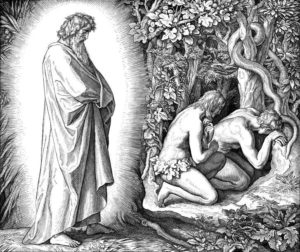 After Adam and Eve sinned, they hid themselves from God. Sounds strange, but something had gone very wrong and so they separated themselves from Him. Criminals hide in order to not be found. Their newfound knowledge of good and evil now included the bitter taste of hell.
After Adam and Eve sinned, they hid themselves from God. Sounds strange, but something had gone very wrong and so they separated themselves from Him. Criminals hide in order to not be found. Their newfound knowledge of good and evil now included the bitter taste of hell.
God is hidden also, but God does not hide the same way we do. Children who play “hide and seek” with their parents actually want to be found; staying hidden for hours (or minutes) on end is no fun, and so they will give themselves away for the “thrill” of the chase back to base.
In a certain sense, this is how God hides from us; He actually leaves Himself to be discovered and pursued and obtained. While He does put conditions on this – we have to want to look and pursue and obtain – the idea of man being hidden is abhorrent to Him. After all, He went looking and calling out (cf. Gen. 3:8). He does not will hell for man.
In fact, there is never a point in time when God leaves man to himself.
When God created the universe, He established man in a state of grace – that is, friendship with Him. There was a familiarity between God and man who was made in His image. No sooner did man sin than God immediately promised a Redeemer who would save him from it (cf. Gen. 3:15).

He then makes a covenant with Abraham and his offspring, chooses a nation to specially dwell with as a prelude to the redemption, gives the Law to Moses, arrives in Person at the Incarnation, and finally, after His Ascension, sends the Holy Ghost upon His Church with a mission to baptize and make disciples of all nations, dwelling in the Tabernacles of our churches until the end of time.
God never abandons man. For God, it was all about forgiveness, reconciliation and restoration, even though man was to learn through the centuries the painful lesson of what separation from God was like, so that man would not want this separation either, be it in this life or in the next.
Although God was completely free and justified to condemn humanity to an eternity of separation, this was not to be. And this is what Advent and Christmas are about: the coming of a Savior and ending hell in our lives, the hell that begins by turning from the forgiveness and reconciliation God extends, demonstrated by the great lengths He took by becoming man and hanging on a Cross, something almost unbelievable if it was not true.
It seems then that forgiveness and faith are linked.
God’s response to man’s sin was to first make possible a means of forgiveness; only after that does He demand faith in consequence of this new arrangement, far more wondrous than creation itself.
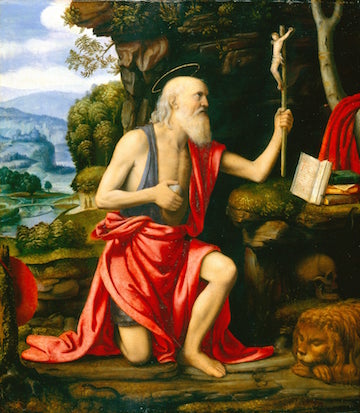 Forgiveness is the first prerequisite for eternal life; there is no one in heaven who has not been forgiven from sin and has not realized their need for it (in our Lady’s case, although preserved from sin, this was on account of Christ’s merits on the Cross). Therefore, the unwillingness to accept this, or to think it is not possible perhaps for oneself, or the refusal to forgive another all militate against faith and begin to create a hell in one’s soul and life.
Forgiveness is the first prerequisite for eternal life; there is no one in heaven who has not been forgiven from sin and has not realized their need for it (in our Lady’s case, although preserved from sin, this was on account of Christ’s merits on the Cross). Therefore, the unwillingness to accept this, or to think it is not possible perhaps for oneself, or the refusal to forgive another all militate against faith and begin to create a hell in one’s soul and life.
As an author astutely puts it: “Unforgiveness locks us into unbelief, and unbelief deepens unforgiveness. It revolves endlessly unless we make a stop, unless we forgive.”
Or maybe it is easier to ignore all this and just be “spiritual”….
To be continued….
December 16, 2020

Where Hell Begins (Part 1)
The twentieth century has been described as the bloodiest century in human history.
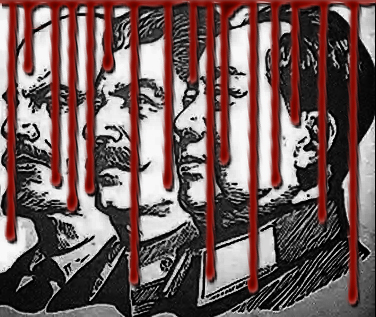 Two world wars, the Russian and Chinese communist revolutions, Vietnam, Cambodia, and Korea (among others), together with the cultural revolution in the 1960’s and the ongoing ones orchestrated through the internet and higher education, along with legalization of abortion and most things foul and debauched provide hard evidence in support of this claim. For those who do not believe hell exists (and that there are souls in it), it would make one wonder what color the sky is in their world.
Two world wars, the Russian and Chinese communist revolutions, Vietnam, Cambodia, and Korea (among others), together with the cultural revolution in the 1960’s and the ongoing ones orchestrated through the internet and higher education, along with legalization of abortion and most things foul and debauched provide hard evidence in support of this claim. For those who do not believe hell exists (and that there are souls in it), it would make one wonder what color the sky is in their world.
Humanity has done a great job at creating its own hell right here on earth; to think that such could not continue in the afterlife requires no small amount of denial. Only the most hardened atheist or evolutionist will fail to admit that there is something fundamentally wrong with man, and its remedy goes beyond our natural capacity. Perhaps the twentieth century (and the trajectory we are currently on in the twenty-first) merely (merely?!) amounts to more and more radical, destructive, and ultimately futile attempts to disprove the reality of our condition.
Critics will accuse us of reducing the complex problems facing humanity down to a simple cause.
But if we understand something of the origin, we have a good chance to understand and accept its remedy. The rebellion we all feel within us is not supposed to be there, nor can it be satiated and disappear by stoking it; a moment of disordered gratification runs the risk of a more vehement comeback, but that runs against conventual wisdom. Humanity is in a state of rebellion with itself.
The book of Genesis describes in poetic language a rebellion that occurred between our first parents and God. Creature rebels against Creator and so the punishment necessarily must fit the crime: the harmony and order God established within us between our reason, will, and passions was turned upside down.
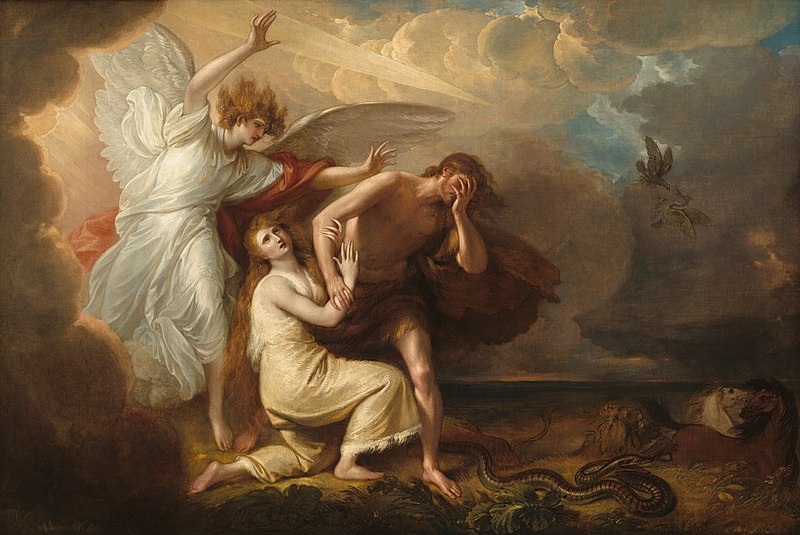
We are prone to selfishness, self-indulgence and to experience in some way a life absent from God, for, left to our own devices, there is no way back to where we were, a veritable hell for ourselves and others. St. Augustine says it well about original sin: Man sold himself into slavery, but could not purchase himself out of it.
It would do well for our modern world (and the Church in some regards) to come to terms with the reality of original sin. Is there really any better explanation for why we are the way we are? It actually does cover all the bases. The challenge for the modern world, of course, would be the need to admit that God exists and actually has expectations for humanity. That is because sin is committed against someone, it is something personal and thus requires admission, humility, honesty, and mercy for its remedy, all things that come at a cost. These require communication, something that requires effort to do effectively.
Interestingly, leaving aside for a moment the irreligious or anti-religious, these realities are often dodged by those who describe themselves as spiritual, a term that is as amorphous and slippery as is the word nice.
At its root, being spiritual does not carry any responsibility and does not involve an encounter with a personal God who makes demands on us, enabling one to be always okay with the way one is. Having no need for formulated dogma or authority outside oneself, one is permitted to make up his own rules, avoiding any moral impetus to really be better and master oneself.
Being spiritual avoids the hell that comes with a broken or damaged relationship with God and that requires genuine partnership and cooperation with Him to repair, something He desires more than we can imagine.
There are lots of spiritual people out there. And they are in danger of trading a hell we are supposed to overcome for the hell that will never end. They avoid the wondrous truth about the God we all need.
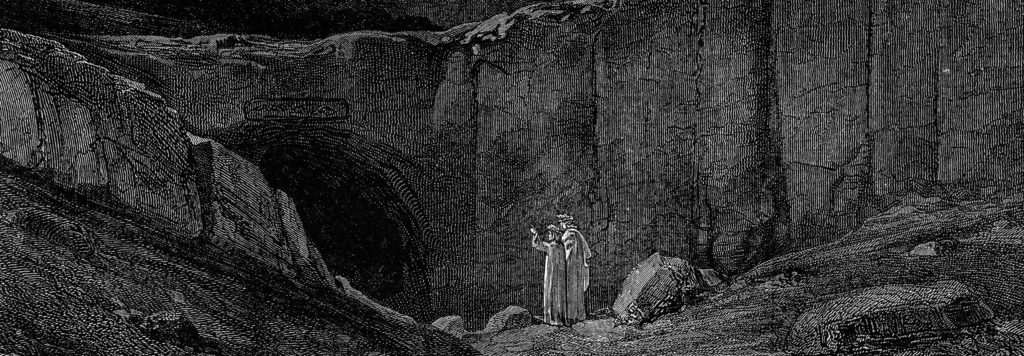
But Catholics can fall into this camp, too, at least practically.
Are we aware of the arrangement God has made for our salvation, and do we let that penetrate deeper than the skin? If not, it is time to call upon the Holy Ghost to stir up some fortitude about this.
To be continued….
December 14, 2020

Advent 2020 video post: Creator Alme Siderum
Wishing all our friends and supporters a holy Advent season. May God richly bless you as we prepare for the coming of Christ.
With special thanks to Corpus Christi Watershed for the music.
December 11, 2020

A Corona Worth Spreading
On May the 17th, in the year of Our Lord 1846, Our Lady of the Immaculate Conception was proclaimed the principal patroness of the United States of America.
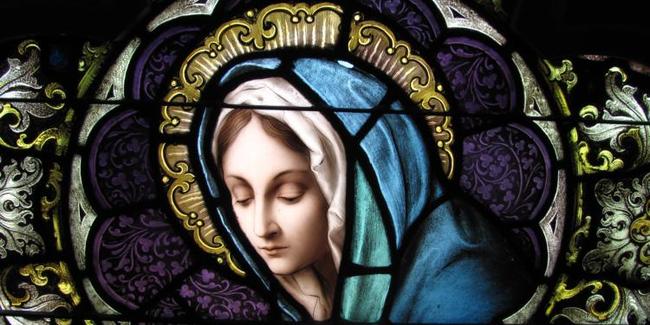
But it is sadly questionable whether contemporary American Catholics have taken that proclamation to heart. To be sure, the feast is duly listed on our liturgical calendars, but how deeply has it entered our folklore and our culture? Does it have the popular presence that La Guadalupana has in Mexico? Or even Lucia in Protestant Sweden? Our non-Catholic countrymen are probably not even aware that we have a patronal feast that day. And that is our shame, not theirs–for we apparently have not shown enough interest in it to attract much notice.
We also find ourselves in Anno Domini 2020 with an extra additional threat to our Patroness’s public honors: an RNA virus of the family Coronaviridae, named for their round, spiky outer appearance, which have reminded taxonomists of the solar corona.
But it would be better to call to our minds a corona of a different sort that can actually help our proper celebration of this feast rather than hinder it.

For that we need one more chronological diversion to the upper Mississippi River in the 1670s, when the French-born Jesuit missionary Jacques Marquette was exploring the region. Readers will likely know Marquette through the buildings, counties, towns, universities, rivers, lakes, parks, railway and boating companies, and a diocese that are named after him.
But there was more to the man than geography. Father Claude Dablon, Marquette’s superior, wrote of him posthumously in 1677:
We might say much of the rare virtues of this noble missionary: of his zeal, which prompted him to carry the faith so far, and proclaim the gospel to so many peoples who were unknown to us; of his gentleness, which rendered him beloved by all, and made him all things to all men — a Frenchman with the French, a Huron with the Hurons, an Algonquin with the Algonquins; of the childlike candor with which he disclosed his heart to his superiors, and even to all kinds of persons, with an ingenuousness which won all hearts; of his angelic chastity; and of his uninterrupted union with God.
But that which apparently predominated was a devotion, altogether rare and singular, to the Blessed Virgin, and particularly toward the mystery of her Immaculate Conception. It was a pleasure to hear him speak or preach on that subject. All his conversations and letters contained something about the Blessed Virgin Immaculate — for so he always called her. From the age of 9 years, he fasted every Saturday; and from his tenderest youth began to say the Little Office of the Conception, inspiring every one with the same devotion.
It is immensely consoling to the modern reader to hear such fervent devotion in a famous name so important to American history, showing that the 1846 proclamation had a taproot anchoring deep in the soil of national history.
Dablon’s letter then follows this description with a treasured bit of information on Pere Marquette’s devotion:
“Some months before his death, he said every day with his two men a little Corona of the Immaculate Conception which he had devised as follows: After the Creed, there is said once the Our Father and Hail Mary, and then 4 times these words: Hail Daughter of God the Father, Hail Mother of God the Son, Hail Spouse of the Holy Ghost, Hail Temple of the entire Trinity. Through thy holy virginity and Immaculate Conception, o Virgin most pure, cleanse my heart and my flesh. In the name of the Father, and of the Son, and of the Holy Ghost — concluding with the Glory Be, the whole repeated three times.”
The Corona of the Immaculate Conception.
This short passage contains a description of a uniquely North American devotion, authored by Pere Marquette and honoring our national Patroness.
 How such an important sacramental has somehow evaded two centuries of American Catholic devotional manuals and prayer books is hard to say. Perhaps it was unthinkingly glanced over, confused with the similarly named, though quite different, Chaplet of the Immaculate Conception by St. John Berchmans.
How such an important sacramental has somehow evaded two centuries of American Catholic devotional manuals and prayer books is hard to say. Perhaps it was unthinkingly glanced over, confused with the similarly named, though quite different, Chaplet of the Immaculate Conception by St. John Berchmans.
In any case, it needn’t languish in obscurity anymore. Now is the time for us to renew our dedication to Our Lady of the Immaculate Conception, to beseech her powerful intercession on behalf of our nation and to make our love for her all the more visible, that the entire world may bear witness to it.
And now is the time, with all the gifts of technology that we have been blessed with, to propagate Our Lady’s Corona, to spread this devotion to every last corner of our country.
Virally, one might even say.
Hail Daughter of God the Father, Hail Mother of God the Son, Hail Spouse of the Holy Ghost, Hail Temple of the entire Trinity!
December 7, 2020

An Ounce of Prevention Worth the Pound of Cure
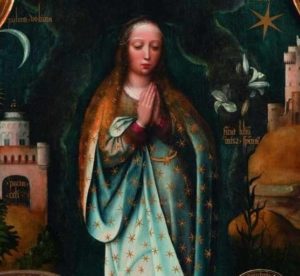
The Incarnation, Death, and Resurrection of the Son of God are the cause of the redemption of the human race. Our Lady is included in that, for we hear her proclaim in her great Magnificat that her spirit rejoices in God, my Savior.
In God’s plan for Mary to be the Mother of the Word Incarnate, He would embellish her with all the graces necessary for such a call, consequent upon one chief gift.
If a man came upon a large pit with people trapped in it and was able to pull them all out, he would be rightfully credited with saving them. And if the same man prevented a woman from falling into it, he would be equally credited with saving her.
Same pit of original sin, same Redeemer in the Person of Jesus Christ, just a different way of handling the situation.
So goes the privileged grace of the Immaculate Conception of our Lady.
And on account of this, how she finds herself be in a position to assist our Lord in His work, understanding well how she is included in that lot of humanity. O Mary conceived without sin, pray for us who have recourse to thee!
December 4, 2020

Thoughts for an Extraordinary Advent (Printable Guide)
Fr. William Rock, FSSP has put together a series of excellent 2-page guides to the liturgical seasons of the traditional Roman Missal, highlighting their major themes, liturgical peculiarities, and special prayers.
They are in pdf form for easy downloading and double-sided printing on a sheet of paper, and they can be used in the home or as bulletin inserts or fliers in your parish.
Feel free to use and share, and thank you Fr. Rock for compiling these guides and making them available to our readers!
Thoughts for an Extraordinary Advent (PDF)
December 3, 2020


